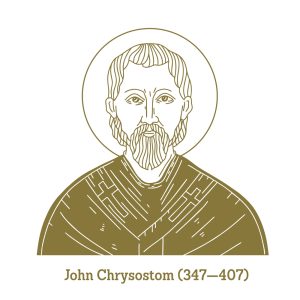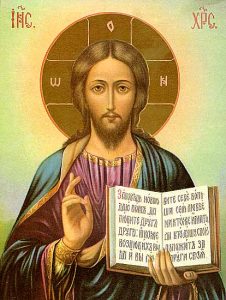Moral theology judges three aspects of a human act; the action, the agent and the circumstances. In regards to the agent or person who commits the objective act, there is a surplus of subjective elements that determine an individual’s culpability and inclinations towards an action. Temperament plays a key role in a person’s overall disposition towards passions, inclinations and reactions. Temperaments are more permanent and natural dispositions of the soul. Temperaments are the blue prints for how individuals act naturally. One is more naturally this or that not due so much to nurture but to nature itself. Hence individuals exhibit more natural and easy tendencies due to one’s temperament. While one can learn to mask certain poor qualities that coincide with a temperament, it nonetheless remains the natural and internal driving force behind the person.

In addition, a person’s character is based upon temperament and learned social rules and regulations that define how that person responds to issues. One’s character hence reflects a moral code that is binds one to interactions. A person may be very honest and this element of character manifests. In addition to character, psychology also recognizes personality. Personality plays a key role in how one interacts with others. Personality is more fluid over time than character and temperament, but character traits and temperament all play key components of one’s personality. The key to remember though is temperament is not a learned trait but a far more natural trait. It lends certain qualities to that make certain characters easier or harder to foster and also plays a key role in one’s social interaction with others.
Rev Conrad Hock presents an excellent essay on the four temperaments and their implications in morality and Christian ministry. The temperaments clearly can play a key role in applying stimulation or inclination towards certain vices but as well as virtues. So while there are natural inclinations with both positive and negative connotations, nurture plays a key role in guiding one’s natural temperament or temperament combinations to a more virtuous life. In Hock’s, “Four Temperaments” he points out the great importance of understanding oneself. He states,
“Socrates, one of the most renowned of the Greek sages, used and taught as an axiom to his hearers:
‘Know yourself.’ One of the most reliable means of learning to know oneself is the study of the temperaments. For if
a man is fully cognizant of his temperament, he can learn easily to direct and control himself. If he
is able to discern the temperament of others, he can better understand and help them”.“Four Temperaments”. Hock, C. (1998) Access here
Christian Counselors, spiritual directors and clergy can utilize an understanding of the temperaments to better aid individuals in their spiritual development as well as learn how to better interact with others in the social life. One way to discern one’s own temperament as well as others is how one responds to things in life or stimuli. Hock refers to individuals who respond quickly to stimuli, respond but lose interest, do not respond but ponder, and those who show little interest as four qualities of Choleric, Sanguine, Melancholic and Phlegmatic (1998, p.3). If one is able to better diagnose these responses, then one can better determine the prominent temperament of an individual.
The Four Temperaments
The first temperament is choleric. Based off from ancient Greece correlation of yellow bile within the human body, individuals who are choleric are very assertive individuals. They are very receptive to stimuli and the reception is not fleeting but long lasting. They are very goal orientated individuals with little time for emotion. They can become very impatient, angry and irritable when results are not met. This personality is also more self serving and egotistical in its essence.

Children who exhibit these qualities need to be shown more restraint and nurtured to see the needs of others and to be more reflective and caring. Obviously the vice of pride can easily manifest within this temperament if not balanced with humility. Individuals who have this a dominating trait may be very successful in life but also may be open to narcissism and other anti-social personality disorders void of conscience. Hock points out that a choleric may very well be egotistical, stubborn, very confident, and dominant ( 1998, p. 7). Obviously when dealing with a choleric temperament, confrontation and criticism is not the best approach. The good news is not everyone usually has a one temperament and other temperaments can balance out qualities, as well as virtues that can be utilized. Saints that possessed a very strong choleric nature not only balanced their ego with humility but also utilized their goal orientated mind to helping others and building up the Church with spiritual goals.
The second temperament is sanguine. Sanguine temperaments are also quick to respond as the choleric temperament but unlike the choleric, the sanguine response is fleeting. The sanguine temperament coincides with the bodily fluid of blood and finds excitement in pleasure and social settings. This extrovert temperament however has a hard time remaining responsible and will move from thing to thing, especially things that involve extra effort. This temperament is very social and easily builds relationships and optimistic but also very superficial and unstable (Hock, 1998, p.11).
Obviously, the worldly, temporal and pleasure seeking nature of this temperament needs grounded. It needs grounded with a strong spirituality and also some form of responsibility. It can easily be thrown into a hedonistic, irresponsible life style. Hence, sanguine temperaments need denial at an early age to properly curb any appetites (Hock, 1998. p. 14). When directed properly, it can be a social and helpful temperament that finds value in friendship and in helping others. Its extrovert nature wishes to be part of the world and be utilized as a way to bring God to others.
The third type of temperament is melancholy. A melancholy temperament stems from black vile and is more intuitive and emotional. It is slower to react to issues but ponders and reflects in greater detail. An individual with a melancholic temperament will exhibit a more reflective and reserved reactions to things. Many times, these individuals are indecisive due to the numerous emotions they reflect on for each situation. As the need suggest, this temperament is more subject to darker moods, sadness and can fall into depressions. They are also slower to forgive emotional offenses (Hock, 1998, p. 18).

A melancholic devoid of spirituality and God can easily lose faith in the world. Yet one who has God in their heart is very deep and emotional in all aspects of prayer life. Melancholic temperaments need encouragement and sympathetic understanding (Hock, 1998, p.19). Furthermore they need to be reinforced with optimism and the power of God in this world.
The final type of temperament is phlegmatic. Phlegmatic temperament is associated with phlegm in the body. These temperaments are very passive and introverted. They show little interest to issues and little response. They are by nature more easy going. The phlegmatic temperament is not easily offended and works well with others. However, due to its more relaxed state it can be more subject to sloth and laziness (Hock, 1998, p. 20). Children who show a more introvert side need more stimulation as well as information repeated. They are more docile in nature and respond less heatedly to reprimand. In the spiritual life, they need motivated and directed towards the awesome love of God and the need to implement action into life.
Application
The more dominant a temperament, the more difficult it is to curb and shape. One naturally without sin has inclinations according to temperament but one through spiritual training can not act on first impulse, analyze and respond in a more virtuous way. The temperaments explain why some are more inclined to certain vices or certain virtues. Like natural talents, some are more naturally patient, or kind, while others may be more prone to the senses or outbursts of anger. Just like virtue, one can easily find attraction to certain vices due to temperament.
This is why nurture through parenting and moral code is so key in forming the overall personality of a person. A more choleric personality does not predestine one to be a narcissist or a successful business person but it does lay the inclination for such bad or good achievements. Through moral character, formation of conscience and parental guidance any temperament can be utilized for a particular good and greatness within the Church. Likewise, when not curbed, or directed towards God, certain temperaments can lead to a destructive life style.
Fortunately as well, not everyone possesses one temperament. Usually one possesses a dominant temperament with a secondary temperament. The secondary temperament can make different blends that make someone not completely an extrovert but someone who enjoys both social but also private life. Mixtures and balances via secondary temperaments help create very complex individuals. When one adds, biological, psychological and social aspects, personalities can definitely become more complicated. This also creates a variety of personality types that are also covered in psychology. Four particular types of personalities can be found within each four primary temperaments. This obviously also excludes any mixtures. To learn more, additional readings lists these types of personalities.

Temperaments though remain at the core of a person’s personality. They are the natural inclinations and first reactions within a person. It is important to know oneself and if helping others via counseling, to try to have some idea of the temperament of the person. Christian Counselors can better guide their spiritual children with a better understand of temperament.
Please also review AIHCP’s Christian Counseling Certification and see if it matches your academic and professional goals. The program is online and independent study and open to qualified professionals seeking a four year certification in Christian Counseling.
Additional Resources
“Four Temperaments Test: What’s My Temperament?”. Hinson, L. ( 2022). PsychCentral. Access here
“The 4 Temperaments”. PersonalityMax. Access here
“A Catholic Guide To The 4 Temperaments: Which One Are You?”. Netherton, G. (2021). Good Catholic. Access here
“Temperaments: Which of the 4 Types Are You?”. Ohwovoriole, T. (2023). VeryWellMind. Access here
























